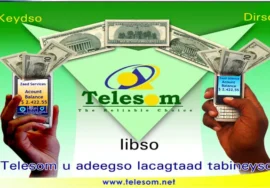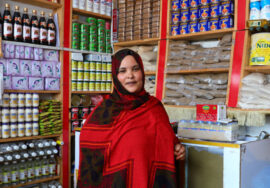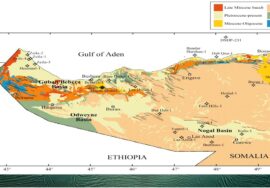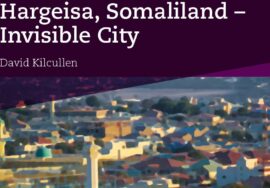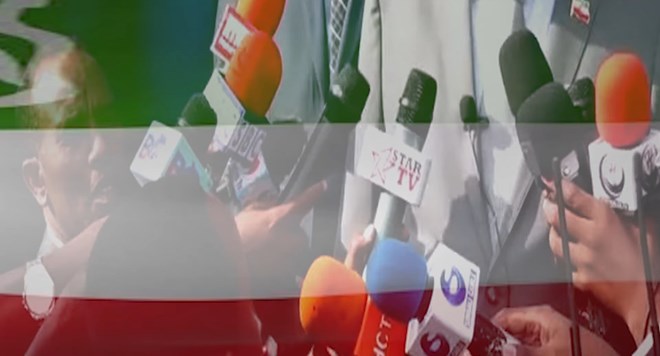
SOMALILAND MEDIA CODE OF CONDUCT
SOMALILAND MEDIA CODE OF CONDUCT
PREAMBLE
All members of the Media in Somaliland have a duty to maintain the highest professional standards. This Code of Conduct, which includes this preamble, is the general principle applicable to the Somaliland Media throughout the non-election period, the Voter List Public Display and Verification exercise and the post election period. It contains rights and obligations of the press during the voter list display process, election and post-election time. It sets benchmark for ethical standards, and protects the individual’s and the public’s right to know. This is the cornerstone of the system of self-regulation to which the industry has made a binding commitment.
It is essential that an agreed Code be honored not only to the letter but in the full spirit. It should not be interpreted so narrowly as to compromise its commitment to respect the rights of the individual, nor so broadly that it constitutes an unnecessary interference with freedom of expression or prevents publication in the public interest.
It is the responsibility of editors and publishers to apply the Code to editorial material in both printed and online versions of publications as well as broadcasting. They should take care to ensure it is observed rigorously by all editorial staff and external contributors, including non-journalists.
This Code of Conduct also contains general principles, codes and ethics which are only applicable during the voter list public display and verification period, polling and post-election period specially designed for the Somaliland situation.
The media plays an important role in monitoring the voter list public display and verification period, polling and post-election period. By covering these electoral processes, the media ensures that the public is aware of what is happening.
Good media coverage of the electoral process can increase public knowledge and information on the elections, the candidates and the issues. The coverage of elections in the media, and its analysis of candidate platforms and election issues, provides voters with the information they need to make an informed choice on voting day. It can also provide factual information needed by voters to participate, such as the day, hours of voting and locations of polling stations.
GENERAL PRINCIPLES OF THE MEDIA CODE OF CONDUCT
- Somaliland media should behave in responsible manner and observe the professional ethics, impartiality, balanced reporting of the facts, while taking care not to publish inaccurate, misleading or distorted material including pictures.
- Everyone is entitled to respect for his or her private and family life, home, health and correspondence. A publication will be expected to justify intrusions into any individual’s private life without consent
- Journalists and photographers must neither obtain nor seek to obtain information or pictures through intimidation, harassment or persistent pursuit, misrepresentation or subterfuge.
- Journalists must not interview or photograph a child under the age of 15 on subjects involving the welfare of the child or any other child in the absence of or without the consent of a parent or other adult who is responsible for the children. Young people should be free to complete their time at school without unnecessary intrusion by the media. Also journalists may not interview mentally sick persons on election issues.
- If any accident happens during the election date, journalists or photographers making enquiries at hospitals or similar institutions should identify themselves to a responsible executive and obtain permission before entering non-public areas.
- The press must avoid prejudicial or pejorative reference to a person’s clan, race, color, religion, sex or to any physical or mental illness or disability.
- Journalists or photographers should follow the copy right and right for reservation.
- Journalists have a moral obligation to protect confidential sources of information.
- The media is a Pillar for human right defenders and other human right abuses.
- Whenever it is recognized that a significant inaccuracy, misleading statement or distorted report has been published, it should be corrected promptly and with due prominence.
- The media should not be used for a personal gain, which is against the journalistic ethics, and any journalist who behaves like this will be declared as unethical and unprofessional.
- Media should not disseminate any information which damages the privacy of the people, their reputation and dignity.
- Media should refrain from publishing material which may violate the sanctity of Islamic religion.
- The media should exercise great caution while reporting on cases in courts which are not yet decided, so as to avoid damaging the proceedings. However, this should not be interpreted as restricting the media right to report on judicial proceedings.
- A fair opportunity for reply to inaccuracies must be given to individuals or organizations when reasonably called for and must be accorded an adequate space or air time,
- In cases involving personal grief or shock, enquiries should be carried out and approaches made with sympathy and discretion.
- The media should participate in the voter education process so that voters should have an informed decision to vote for the candidate of their choice.
- Journalists must not seek to obtain information material by using clandestine methods such as hidden cameras or listening devices unless public interest or the need to inform the public makes it necessary to do so.
- Journalists should not exaggerate the announced results of the election in a way that morally boosts the winning party and undermines the losing parties as this kind of reporting may have a negative impact on the peace and security of the country and may lead to violent attacks.
In order to fulfil this role the media, as a guardian for the nation, urges the Somaliland authorities to give journalists unhindered access to ensure the transparency of the electoral process.
In return the media pledges to treat all political party information with impartiality and expects the state to publish its information in both public and private media.
1- Rights of the Press during the election period
- All media must have access to the electoral process and its participants including registration data, electoral managers, electoral sites, candidates and voters.
- It is essential that the media have access to public information.
- The media must be able to study and report in a safe environment, without fear of intimidation or retribution.
- The media should be free to cover and report on the voter list display process, election and post-election events without restrictions or censorship.
- The media needs to be able to move freely throughout the country so that it can follow national campaigns or candidates and see how the election administration is working in outlying areas.
- All media should be treated equally, whether it is the government or the private media. This applies to accessibility to political parties, candidates, the electorate, electoral sites and information.
- Public authorities and other concerned parties should refrain from interfering with the activities of journalists and other media personnel with a view to influencing the elections.
- In order to combat the danger of speculation the election results must be released in a timely manner.
- The foreign broadcast media working in Somaliland have significant geographical coverage, listenership and potential influence on voters. For this reason, these services should be encouraged to report on the Somaliland election campaign in a considered and in-depth manner giving due regard to their own codes for election coverage and the code adopted by the Somaliland media below.
- The National Electoral Commission (NEC) is encouraged to monitor the election coverage of foreign broadcast media and establish a liaison mechanism for dealing with complaints.
- To avoid hearsay about the election results, and in compliance with the Electoral Laws of Somaliland, the media should be given the preliminary result, from district level, regional level and national level by the responsible NEC Spokesperson and Leadership.
2- RESPONSIBILITY OF THE MEDIA DURING THE VOTER LIST PUBLIC DISPLAY AND VERIFICATION PERIOD, POLLING AND POST-ELECTION PERIOD
In return and with due respect for editorial freedom, the Somaliland media has adopted the following Code of Conduct for the VOTER LIST PUBLIC DISPLAY AND VERIFICATION PERIOD, POLLING AND POST-ELECTION PERIOD:
- To cover the voter registration, party election campaigns, voting and the post-election period in a fair, balanced and impartial manner.
- To ensure accurate, balanced and impartial coverage of the news and current affairs and in the content of interviews and debates that may have an influence on the attitude of voters.
- To avoid excessive and privileged coverage of candidates from the both the ruling and opposition parties.
- Not to disseminate any partisan electoral messages on the day preceding voting, to allow voters to take a decision without pressures.
- As far as possible, to report the views of candidates and political parties directly and in their own words, rather than as others describe them.
- To guarantee a rapid right of reply to a candidate or political party, if so required, in order that this right can be exercised during the campaign period.
- To ensure that news content is factually accurate, complete, relevant and in context.
- To use neutral words for impartial, dispassionate election reporting and take care with technical terms and statistics and ensure headlines reflect the facts of the story.
- To avoid inflaming emotions over controversial issues through impassioned handling of these issues.
- To label opinions and personal interpretations as such, and limit opinions and editorials to the editorial and opinion pages/programmes.
- To label advertising clearly so it is not confused with the news and to ensure that advertising coverage complies with the Code of Conduct for political parties adopted by the Media and NEC.
- Journalists are obliged to introduce themselves as such and to be honest and fair in the way news is gathered, reported and presented.
- To honour pledges of confidentiality to a news source, otherwise identify sources of information.
- Not to alter photographs or graphics to mislead the public.
- Not to accept any inducement from a politician or candidate.
- Not to give favourable advertising rates to one political party and deny another.
- The media should avoid any opinion polling which is not based on facts or that might have been carried-out unscientific manner.
- The monitoring committees of the NEC should follow up and monitor how the media are following their Code of Conduct.
- The NEC media monitoring office should follow up on the impartiality of the media with regard to the political parties.
- Somaliland media should avoid any speculation on the voting result without getting it officially from the NEC.
- NEC will form a special committee that looks into complaints by the political parties or the public with regard to any possible violations committed by media institutions or journalists against this Code of Conduct.
- The complaints committee will publically condemn any media institution or journalists which is found persistently reporting on VOTER LIST PUBLIC DISPLAY AND VERIFICATION PERIOD, POLLING AND POST-ELECTION PERIOD in a biased manner.
- This Code of Conduct shall be effective as of the date signed by the parties to this Code and shall expire after post-election reporting is finalized.
- All media participants at the Conference on which this Code of Conduct is adopted shall sign a Declaration of Commitment.
- This Code of Conduct shall be signed by the Ministry of Information, heads of the Private Media Organizations and NEC.



